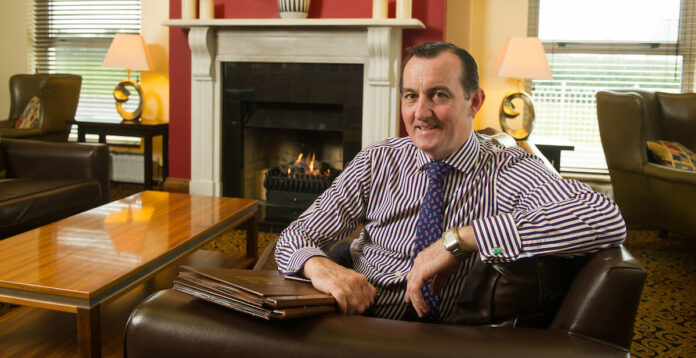ATTITUDES to work have changed quite dramatically since before the pandemic, and it’s one of the reasons Clare tourism is going to see a huge labour shortage this summer, Lahinch hotelier Michael Vaughan says.
Mr Vaughan said that conversations he has had with people in other sectors suggest the shortage is quite widespread across the economy, and he feels that younger people don’t attach as much importance to work as they would have done even a few years ago.
“The only explanation I can give is that there has been a reset in the mindset of a certain cohort. Certainly younger people aged from 20 to 30 seem to have reset their opinion of what the balance of work and life is.
“That allied to the surplus of money that a lot of that age group might have from the pandemic payments, this year they’re not inclined to take up seasonal work or work that’d be full time.
“There seems to be an appetite for maybe a few days a week of work. This year I find that a lot of people have a maximum amount of hours they want to work, it generally seems to be 18 or 20 hours.
“Work seems to be incidental to other activities in life. It’s not a main priority for a lot of people, certainly at the moment, that’s what I’m finding.”
At the moment he is trying to fill ten vacancies in his own business, and recent months have been very disappointing, as he has spent thousands, to little avail.
“I’ve been advertising for jobs, decently paid jobs, since January and I’ve spent five or six thousand euro on it now. There have been maybe two replies, there would have been lots from outside the EU, but very little internally.”
“It’s a crisis situation at the moment and the Irish Hotels Federation have met with the Department of Enterprise, Trade and Employment as recently as last week to try and persuade the Department that there are a number of job categories that now have to go on the critical skills list for work permits.”
Without employees there won’t be businesses open, or at least not open as often as would be expected.
“There’s a huge possibility that a lot of businesses will not be able to operate at full tilt this summer, you’re seeing it already in Lahinch, people only open for three nights a week. Pubs in particular are finding it very hard to get staff.”
He says that at the moment in Ireland there are around 40,000 unfilled positions in hospitality, with the busiest time of the year still to come.
“Many hotels across the State are not selling their total number of rooms each night because they don’t have the number of staff they need.
“I suspect as well that it was very attractive for certain hotels to offer their rooms to the Ukrainian refugees this year because they knew that they weren’t going to get enough staff to operate the hotel in the normal fashion.”
The level of bookings and the interest in coming to Clare is very good, he feels, but the shortage of staff is a huge problem.
“It’s almost an existential crisis. Anyone starting a business this year or who doesn’t have access to accommodation and be able to go overseas for staff, will find it really, really hard to get anyone over here.”
In tourist areas of west and north Clare short term lettings has had a significant impact on the rental market, and it is posing another problem.
“With the prevalence of AirBnB there isn’t any affordable accommodation. For instance a house that my staff were renting three years ago in Lahinch, they were renting it for €400 a month, a two bedroom property. The owners were now looking for €5,000 a month for the same property.”
Last year, due to Covid restrictions, the tourism season was relatively short and businesses muddled through, employing teenagers to get through the busiest times.
This year the season will be longer so the absence of older workers will be felt more, while he says college students aren’t as readily available now.
“It was a given that your first employment in a county like Clare would probably be within a tourism or hospitality enterprise. Even students that would be going to college would have come and worked weekends at this time of year, but that isn’t the case at the moment.”
“USIT are saying they’ve a record number of J1 applications this year and I’d suspect that a lot of students have enough money saved over the last two years to fund going. At best the reset will happen when the new college year starts.”
With a huge shortage of chefs, the food on offer in hospitality outlets will have to change, he says.
“I think you’re going to see a lot of convenience food used in popular catering this year, you’ll see shorter menus, you’ll see less service being offered, that’s going to be the outcome of it.”
Looking at the bigger picture, he feels the hospitality sector is going to have to evolve significantly and adapt to the requirements of the modern worker.
“You’re seeing a seisimic change in hospitality this year, I think it’s going to be a different hospitality industry in the years ahead, and it’ll be a lot more adaptable to the needs of people who are looking to work.”
Owen Ryan has been a journalist with the Clare Champion since 2007, having previously worked with a number of other publications in Limerick, Cork and Galway. His first book will be published in December 2024.


